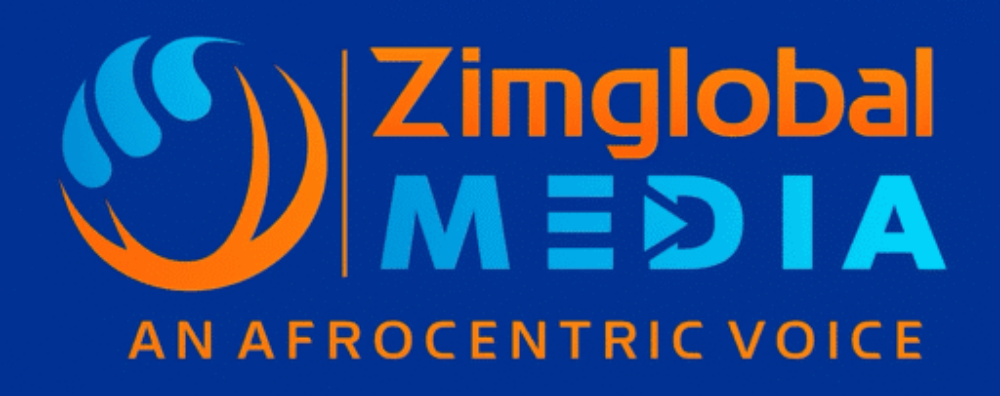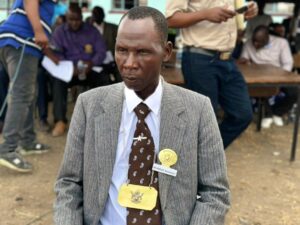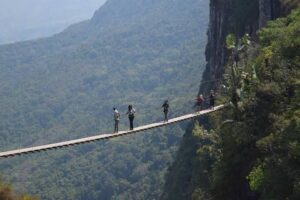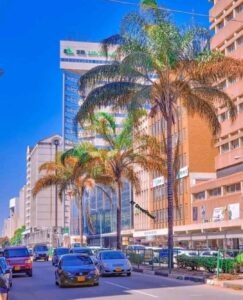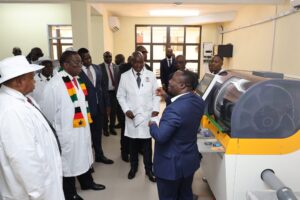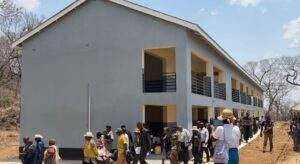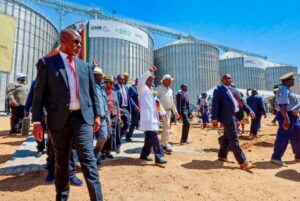Rediscovering Africa’s Forgotten Wisdom – The Missing Link to Modern Development
5 min read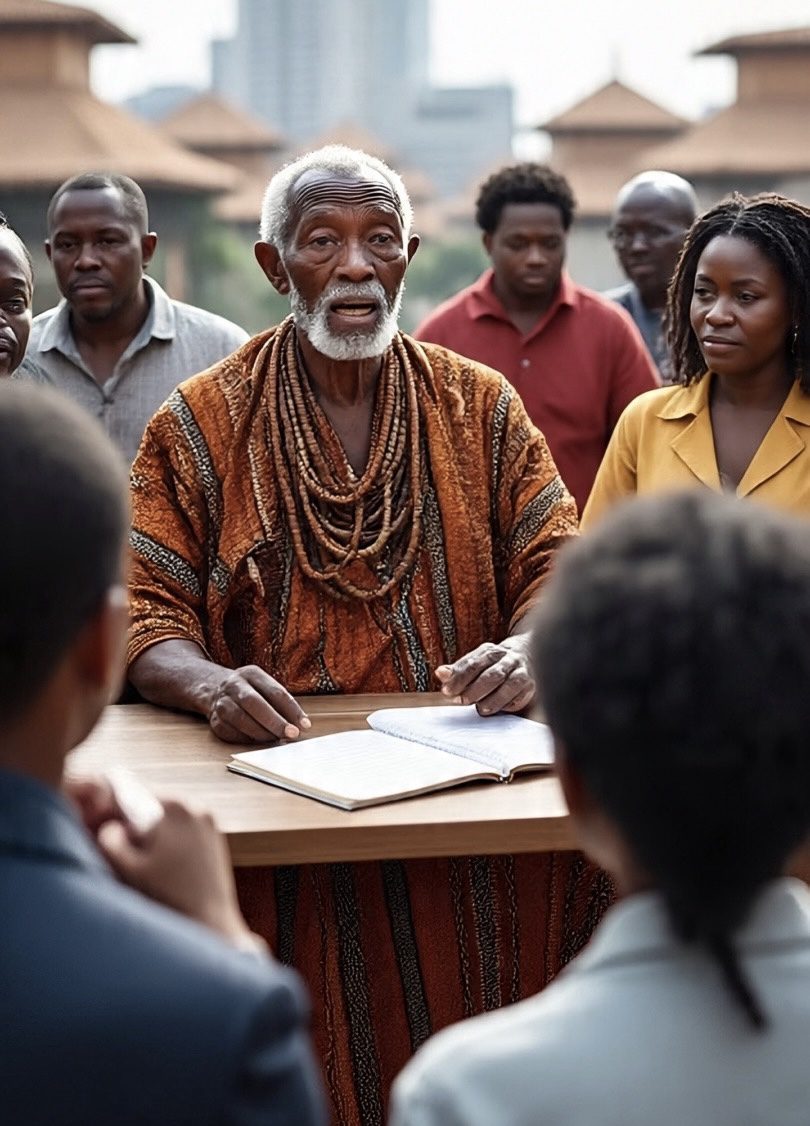
Editorial– Across Africa, a quiet realization is taking shape — that the future may very well depend on the wisdom of the past.
In a rapidly modernizing world driven by technology, globalization, and industrial growth, African Traditional Knowledge Systems (ATKS) are increasingly being recognized as the missing link in sustainable development.
These ancient systems, rooted in centuries of lived experience, continue to provide valuable insights into environmental stewardship, community well-being, conflict resolution, agriculture, and health.
For too long, Africa’s traditional knowledge was dismissed as “primitive,” “unscientific,” or “backward.” Colonial education and governance structures systematically undermined indigenous systems, replacing them with Western models that often failed to consider local realities.
Yet, as the world grapples with climate change, food insecurity, pandemics, and cultural dislocation, the relevance of traditional African wisdom is becoming undeniable.
African Traditional Knowledge Systems are the collective intellectual, cultural, and spiritual resources that have evolved within African societies over generations.
They are not static; rather, they are dynamic systems that have adapted to changing circumstances while maintaining cultural continuity.
These systems encompass a wide range of disciplines — from traditional medicine, agricultural practices, and ecological management to social organization, education, and moral philosophy.
They are often transmitted orally through proverbs, storytelling, apprenticeship, rituals, and communal practices.
For example, in Zimbabwe, the concept of “unhu/ubuntu” — the belief in a shared humanity and interconnectedness — has guided social harmony and collective responsibility.
It teaches that “a person is a person through other people,” an ethos that underpins indigenous systems of governance and dispute resolution across much of southern Africa.
Long before global institutions coined terms like “sustainability” or “climate-smart agriculture,” African communities had perfected living in balance with nature. Traditional farming techniques such as intercropping, mixed cultivation, fallowing, and the use of organic manure have long preserved soil fertility and biodiversity.
Communities in arid regions of the Sahel and Southern Africa, for example, practiced water harvesting through contour ridges and stone terraces, ensuring that even limited rainfall was effectively utilized.
Sacred forests, mountains, and rivers were protected through spiritual taboos, ensuring biodiversity conservation without the need for modern environmental laws.
These practices, grounded in deep ecological understanding, show that Africa has long had homegrown solutions to environmental management — solutions that can complement modern science in tackling today’s ecological crises.
In the realm of health, traditional medicine remains a cornerstone of African life.
According to the World Health Organization (WHO), up to 80% of the continent’s population relies on traditional healers for primary healthcare needs.
Herbal medicines, spiritual healing, and diagnostic methods rooted in indigenous knowledge continue to serve communities where access to modern healthcare is limited. But even in urban areas, traditional medicine remains relevant due to its holistic approach — addressing not just physical symptoms but also emotional and spiritual well-being.
Zimbabwe’s n’angas and inyangas (traditional healers) often employ herbs with proven pharmacological properties.
Some of these, such as Moringa oleifera, Aloe vera, and Artemisia afra, have gained international attention for their medicinal value.
Unfortunately, the lack of structured collaboration between traditional and modern practitioners has meant that this vast knowledge base remains underutilized.
Integrating traditional medicine into national health systems — with proper research, regulation, and documentation — could enhance public health and create new avenues for pharmaceutical innovation.
Traditional leadership structures and community courts have long provided effective systems of governance and justice.
In many African societies, disputes are resolved through consensus rather than confrontation, emphasizing reconciliation, restitution, and the restoration of relationships.
The dare system in Zimbabwe, for instance, brings together elders and respected community members to deliberate on matters of conflict or moral transgression.
Such systems are inclusive and restorative, contrasting sharply with the often adversarial nature of modern legal institutions.
Reviving these indigenous governance frameworks could strengthen social cohesion, accountability, and participatory democracy — particularly in rural areas where formal state presence remains limited.
Modern African education systems largely mirror colonial models that prioritize foreign knowledge and languages at the expense of local realities. Yet, before colonialism, African societies had vibrant systems of education — informal but deeply effective.
Children learned through observation, participation, and oral instruction. Skills such as farming, hunting, craftwork, and social etiquette were imparted within the context of community and environment.
There is a growing recognition that education must be decolonized and reconnected to local contexts.
Integrating indigenous knowledge into school curricula not only enriches learning but also instills pride, identity, and relevance.
Countries like Kenya, Ghana, and South Africa are already experimenting with incorporating traditional knowledge and local languages into education — a model Zimbabwe and others could adopt more robustly.
African Traditional Knowledge Systems are not relics of the past — they are living frameworks that inspire creativity and innovation.
From architecture inspired by natural forms to textile designs rooted in symbolism, traditional aesthetics continue to influence modern art, fashion, and design.
Moreover, the cultural values embedded in these systems promote resilience, adaptability, and community-driven innovation — qualities essential for modern development.
In this sense, Africa’s cultural heritage is not just about preservation, but about powering creativity in the digital age.
The challenge lies in bridging the gap between traditional and modern systems without romanticizing the past or dismissing modern advancements. This requires deliberate policy frameworks, documentation, and community engagement.
Governments, universities, and research institutions must collaborate with traditional custodians of knowledge — elders, healers, farmers, and artisans — to record, validate, and protect indigenous knowledge. Intellectual property laws should safeguard communities from biopiracy, ensuring that traditional innovations benefit their rightful owners.
Furthermore, national development plans must recognize traditional systems as complementary, not inferior, to modern science.
This approach aligns with the African Union’s Agenda 2063, which envisions “an Africa with a strong cultural identity, common heritage, values and ethics.”
Reintegrating African Traditional Knowledge Systems into modern development is not merely an act of cultural restoration — it is a strategic move toward self-determination.
It means building economies and policies that speak the language of the people, respect their environment, and draw from their lived experiences.
As global challenges mount, Africa’s future may well depend on how effectively it can weave together its ancient wisdom and modern innovation.
The key is not choosing one over the other, but harmonizing both to create a development model that is authentically African, sustainable, and inclusive.
The continent’s renaissance, it seems, lies not in looking outward for solutions — but in rediscovering the timeless wisdom already within.
